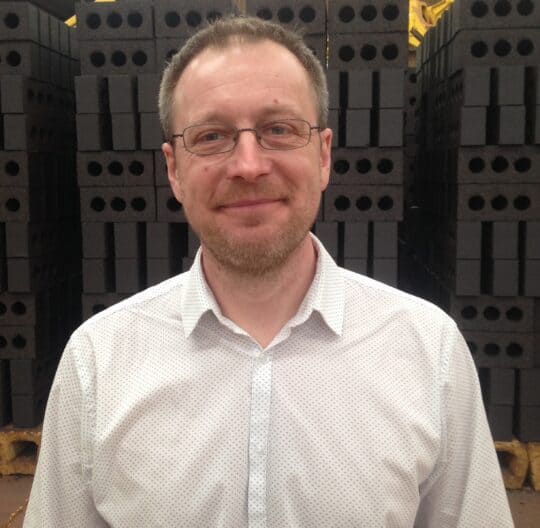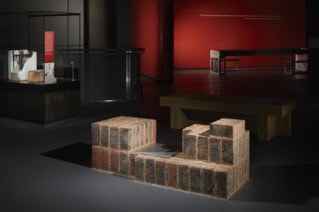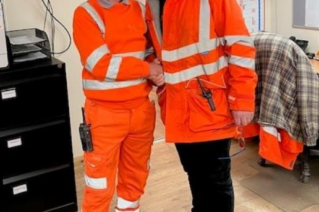Peter Sharp (Above)
Peter Sharp, Group Operations Director and Robert Lindfield, Brickyard supervisor at MBH PLC describe a generation of changes for the brick industry, the roles in which they played and their perception of future brick manufacturing. With an insight into the brickyard’s wide variety of operations and a commendable 40 years of service at Freshfield Lane Brickworks, Robert explains his journey from the day work gang, through to the supply chain (delivering product) and returning to the yard as supervisor. His experience working full circle within the production processes enables him to give an insight into the industry and role changes that he has observed whilst describing his average working day. With energy efficiency alterations rapidly altering the process of brick manufacturing, Peter describes the reasons why these changes have been so important to the evolution of this centuries-old building material and points out the concerns that manufacturers face with uncertain energy security, availability and prices in the future.
Modern materials and methods of control
Peter Sharp has more than 25 years’ experience in the heavy clay and ceramics sector, having started his career with a clayware apprenticeship at Hathernware Ceramics Ltd at the age of 16. He was appointed Group Production Director of MBH PLC in 2006 after acting as Works Manager at the Charnwood plant. Now Group Operations Director since 2009, Peter has experienced the changes in process, technology, materials and economic drivers to improve efficiency and health and safety in the Industry throughout his time at the company
“The main change to the bricks section of the industry has been automation; reducing the manual handling element which traditionally used intense labour methods to fabricate handmade products or operate machinery. The fully mechanised robotic systems in use today are also accompanied by large energy efficient tunnel kilns using modern materials and methods of control to replace brick-built kilns with heavy refractory linings. Traditional methods have certainly not been lost, MBH PLC still currently uses traditional methods to produce a few million bricks a year, specified by the RMI market, high end housing or a variety of prestigious commercial projects. Our greatest demand comes from mass-produced bricks for the volume housing market, predicted to continue over the next 10 years, recognising all political parties are committed to the need for new housing. These two markets niche or volume, entail key concerns and challenges relating to future energy availability and price fluctuations. MBH PLC addresses price by buying gas well in advance with the ability to trade it in or out, based on favourable market conditions to reduce any risk with short-term volatility and protect its budget position. However the security of the gas supply market is complex with a mix of factors to consider – storage and system capacity, planned and unplanned maintenance, LNG, power generation and world events.”
Robert Lindfield (Above)Robert Lindfield has experienced dramatic brick price fluctuations, hit by both the recession of the early ‘80s and more recently in 2008. Apart from the changes in automatic brick production methods, crowding and setting processes have remained the same and now include a larger workforce. Robert describes his average working day: “starting at 6.30am I finish loading lorries from the previous day and then move onto unloading packs from the platforms to keep production flowing. After moving approximately over 50,000 bricks, the packs are stacked, string-wrapped and loaded onto lorries, completing my busy schedule of the day’s duties.”
Peter concludes, “With a real turnaround in construction over the past year, the demand for our products has increased, selling output as well as reducing stock. With continued planning and communication between our sales team and customers, managing call-offs with production schedules, we have been able to satisfy demand during challenging times. Our priorities for the next year will continue to focus on skills, training and investment and we are introducing a technical engineering apprentice programme to run alongside our existing popular apprenticeship schemes. MBH PLC will also be evaluating capital expenditure projects to bring business improvements and increase capacity.”













